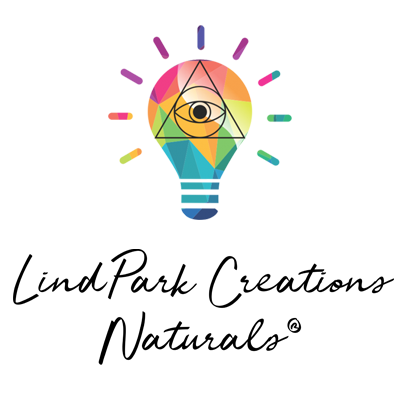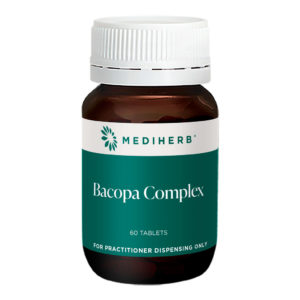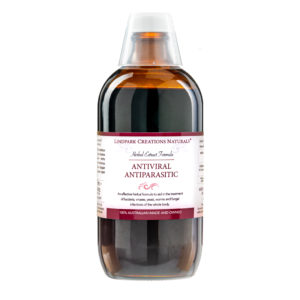Description
TRADITIONAL USES for Brain Health Herbs
Ginkgo biloba –
Ginkgo dates back thousands of years to the Jurassic period and originally sourced from China.
Ginkgo biloba extract can enhance overall wellness, blood flow, and cognitive decline. Rich in potassium, phosphorus, magnesium and Vitamin C. Ginkgo is recommended for memory loss and brain disorders. Other traditional uses include heart ailments like arrhythmias—irregular heartbeat—and ischemia, or the sudden loss of blood flow to any part of the body.
The benefits of ginkgo biloba have been observed and studied for many years. Among the reasons that ginkgo biloba is considered beneficial to your health is that it is a source of both flavonoids and terpenoids. These are important as flavonoids provide potent plant-based antioxidant defence against free radicals in the body, while terpenoids are linked to improved cardiovascular health.
Health Benefits
- Improved blood flow, particularly to the legs and brain
- Stress and mood support
- Cognitive function such as focus, concentration and memory support
- Eye health—some studies have indicated that specific extracts of ginkgo biloba may support eye and vision health
- Blood health—ginkgo biloba extract has been studied for its positive effects on certain markers of blood health and capillary blood flow
Rosmarinus officinalis
Rosemary acts as a circulatory and nervine stimulant, which in addition to the toning and calming effect on the digestion, makes it a remedy that is used where psychological tension is present. This may present as headaches or depression associated with debility.
Rosemary is a carminative, aromatic, anti-spasmodic, anti-depressive, rubefacient and parasiticide.
Bacopa monniera
Brahmi, is a powerhouse of medicinal properties. It has been prized for thousands of years among practitioners of Ayurveda — the ancient Indian system of medicine. Brahmi benefits the mind and enhances brain function supporting memory and enhanced cognition.
Bacopa extract may have short-term effects on neurotransmitters such as dopamine, serotonin, and acetylcholine, which are crucial for healthy brain function. Additionally, it has shown potential as a cognitive enhancer.
Animal studies have also shown that Bacopa extract can support the growth of dendrites (an extension of the nerve cell where impulses are transmitted to and from other cells) and the health of brain cells and neurons. Long-term use of Bacopa extract may significantly support cognitive performance, memory, and overall emotional wellness.
Eleutherococcus senticosus
Siberian ginseng has been used medically for at least 2,000 years. It is an adaptogen, which is why many athletes love it for boosting endurance and reducing fatigue.
It is also used for chronic heart conditions, blood pressure management, chronic fatigue, ADHD and Alzheimer’s disease. It improves mental sharpness similar to caffeine, without the crash of caffeine.
A randomized, controlled, animal study published in the journal, Neural Regeneration Research, looks at the effects of eleutheroside B and E on learning and memory in experimentally aged rats. These active components of Siberian ginseng have previously been shown to improve memory, boost human cognition and relieve fatigue.
The study injected animal subjects with low, medium and high doses (either 50, 100, or 200 mg/kg) of eleutheroside B or E. Four weeks following administration behavioral tests revealed that eleutheroside B or E improved learning and memory in the aged rats.
Turnera diffusa
Damiana dates back to the time of the ancient Aztecs, Mayans and Guaycura who lived in modern-day Mexico.
A nerve tonic, anti-depressant, and urinary antiseptic, it improves energy, stamina and sexual desire. It is excellent at strengthening the nervous system. It also has an ancient reputation as an aphrodisiac, by toning the central nervous system and hormonal system.
Lavandula angustifolia
Lavender is traditionally used for headaches, stress and hair growth. It is an anti-depressant and mood lifter. It is a strengthening tonic to the nervous system, used especially for nervous debility and exhaustion.
Centella asiatica
Gotu kola also commonly referred to as centella, Asiatic pennywort or Indian pennywort, Gotu kola is a versatile herb that goes by many names.
A study published in the Journal of Alzheimer’s Disease revealed that gotu kola extract may be able to improve memory at the molecular level by enhancing the activity of a pathway that is associated with long-term memory formation.
This was demonstrated in a 2002 animal study in which rats were given gotu kola extract and put through a series of tests to measure their cognitive function. The extract was shown to improve learning and memory by increasing antioxidant levels in the blood.
Another study found that supplementation with gotu kola was able to boost both memory and cognitive function in elderly participants.
Thanks to its strong memory-enhancing abilities, this powerful plant has found itself in the spotlight lately as a natural treatment to help slow age-related decline and the progression of conditions like Alzheimers Disease.
Cinnamomum verum
Cinnamon is a carminative, astringent, aromatic and stimulant. It is a protective antioxidant to the brain. It is also antibacterial, antifungal and has anti-diabetic properties. Cinnamon contains polyphenols, phenolic acid and flavonoids. These compounds work to fight oxidative stress in the brain.
The different antioxidants present in the spice help neutralize harmful free radicals in the body and prevent oxidative stress. It also helps limit nitric oxide buildup in the blood and prevents fat peroxidation, both of which can increase the risk of brain disorders, cancer, heart disease and other chronic conditions.
Zingiber officinale
Ginger is a stimulant of the peripheral circulation. It is also a carminative and used in colic or nausea. High in antioxidants, ginger has anti-inflammatory properties with compounds like gingerol, shogaol, paradol and zingerone. They give it not only antioxidant abilities, but also anti-cancer, neuro-protective and cardiovascular protective ones, too.
Capsicum spp
Cayenne is used here for conditions of the heart and blood vessels — including to improve poor circulation, reverse excessive blood clotting, lower high cholesterol and prevent heart disease. It contains capsaicin, carotenoids, flavonoids, and Vitamin C. It is a stimulant, tonic and carminative. Cayenne regulates the blood flow equalising and strengthening the heart, arteries, capillaries and nerves.





